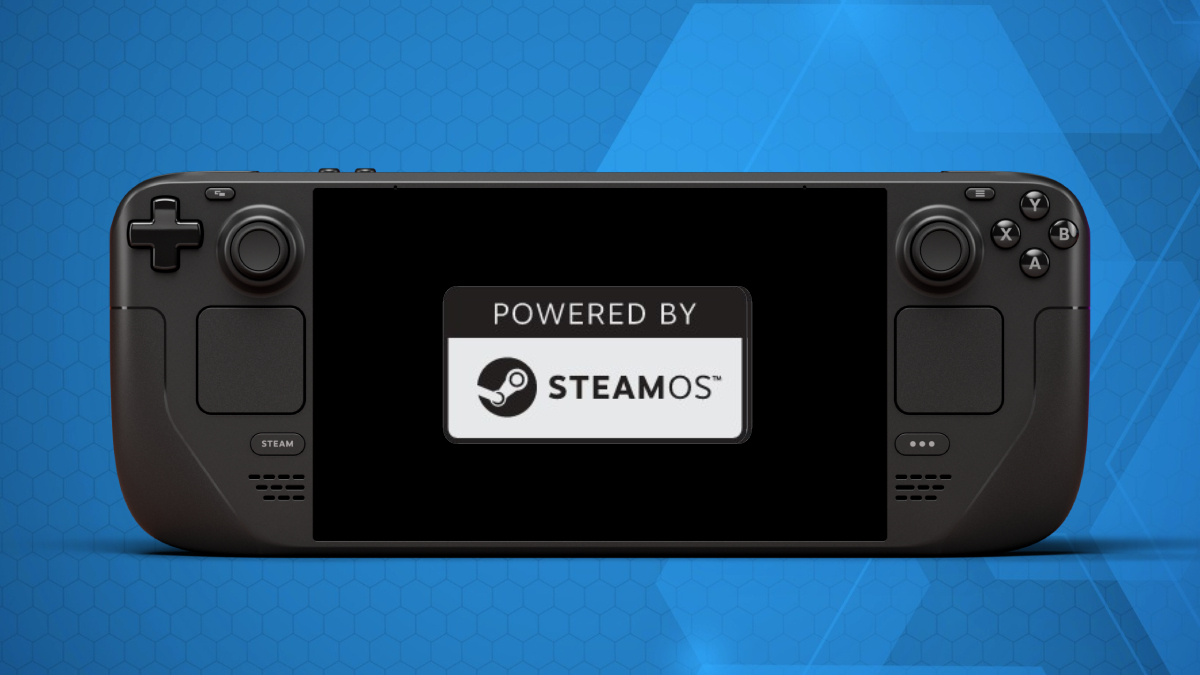Even gamers nexus’ Steve today said that they’re about to start doing Linux games performance testing soon. It’s happening, y’all, the year of the Linux desktop is upon us. ᕕ(ᐛ)ᕗ
Edit: just wanted to clarify that Steve from GN didn’t precisely say they’re starting to test soon, he said they will start WHEN the steam OS releases and is adopted. Sorry about that.
I jumped into Linux, via Mint, about a year ago when I refreshed my hardware. The transition was pretty easy, and I haven’t looked back. Steam runs fine and I haven’t had a modern game that didn’t work under default proton settings except for things I’ve run outside Steam and mods. Most of my personal PC’s workload is gaming and handful of web-based apps that are effectively OS-agnostic; Everything else has an easy equivalent in the apt repos.
I would say that my decision to embrace Linux as my OS was primarily influenced by my Steam Deck. Gaming on it has been simple and the desktop UI was easy to adapt to. I replaced my laptop with the Steam Deck, bluetooth keyboard and mouse, and a USB-C dock with HDMI out (all things I already had for the laptop). I now just hook into whatever TV is handy as a monitor when I need a computer on the go.
I was a tech enthusiast when I was younger, and am thus familiar with fucking around on the command line, but now I’m an old man who just wants his stuff to work and it just has… The barrier of entry for the Linux Desktop is effectively gone. We just need PR now.
Also, I think I’d replace Mint on my primary PC with SteamOS, given a simple way to do so. About a year ago, the desktop/beta SteamOS was not fully baked.
You should give Bazzite a go on your desktop, it’s very similar to SteamOS and the desktop experience has been great for me. I didn’t have a Steam Deck and transitioned to it, and the smoothness convinced me to get a Lenovo Legion Go and install Bazzite straight OOTB.
the biggest wall imo is still getting companies with anticheat games on board.
It’s true that a big slice of gamers play games with anti-cheat solutions that don’t work on linux. That said most of those aren’t even on steam, which is the biggest pc game marketplace, so I’m not sure it’s that big of a dealbreaker for that many people.
you don’t have to onsider off platform titles on its own. just take proton DBs list and sort by playercount and youll have your handful of misses on some of the top currently played titles. that already filters the non steam games already, and it still has its small handful of titles not on board yet.
They’ll come around when the userbase increases. We live in a capitalist world, and these fuckers will always follow the money. They have zero principles, they just want the money.
That will be more likely as more people start using SteamOS.
If SteamOS can get enough users, then not supporting it will start to hurt the game developers profits.Or getting players & friends to stop playing those types of games when there are so many compatible games to choose from.
It will be the opposite. Even Microsoft hates kernel-level anti-cheat.
I wonder why they dont like people fucking around with the kernel
I’m sure it starts with C and ends with “Strike”.
Oohh, counter strike.
Uhhhh, sure, I guess.
Let’s be honest here, they only care because when someone inevitably fucks up, people will think the fault is with windows.
It kind of is Windows’ fault for letting them fuck about in kernel space though, right?
“Cant have those TenCent CCP botnets sniffing the same customers WE’RE sniffing! Get outta here!”
–M$, prolly lol
IMO, no one should be playing games with kernel level anticheat. There is no way I would let any big gaming company have that level of control over my PC. It’s a security nightmare.
If gamers were buying in their best interest nintendo would be bankrupt, there is what gamers should do and there is the real world. The sad reality is that only the low end gamers care about vanguard and they aren’t paying the bills in riot
I wouldn’t say it has anything to do with the financial affluence of the gamer, but I agree with you that the vast vast majority of gamers simply do not care. Like with a lot of things, that same majority would be better off if they did.
After that huge “Salt Typhoon” hack against major telecoms, you’d think people would take “security nightmare” a little more seriously!
Truth is though, your average Valorant/League/Whatever player probably isn’t even aware of it running when they smash through ok -> ok -> agree -> yep -> accept -> accept -> ok -> play.
Any kernel-level anything connected to major corporate servers should be scary and taboo, but except for the alarm-raisers who know what they’re talking about, most people don’t even understand the implications.
I’m glad Steam is at least marking a big “This game requires kernel level anti cheat” on store pages now. It looks ugly, possibly scary, so maybe that’ll raise some awareness and make developers not want to go with it.
sadly theres a line between shouldn’t and how the market responds to it. Regardless of the fact, it is a hurdle, and the reason why not all of the top games on the concurrent player list on steam is playable on SteamOS, whether one likes it or not.
I wonder if Valve will eventually offer their own system of checks similar to Google Play Integrity? I don’t think I’d care for it since it’s an invasion of personal choice on a device that you own, but for people who want to play competitive games with cheating problems, running a partition with integrity checking seems a fair trade.
If it’s an immutable system, it should be easier to ensure system integrity IMO.
Yeah you can do most of that server side but they don’t want to pay for it. Why pay when your players let you coop their machine for free or even better yet pay you for the privilege. Also player run dedicated servers would fix all of this. Don’t like the cheaters movement servers. Own the server ban them. We had this working just fine in the 90s.
I would imagine it wasn’t that large scale back then. I wasn’t in the 90s so I wouldn’t know. But some games with player servers are filled with extremely triggering names and env, if you know what I mean. I’d rather prefer the current matchmaking.
The tick was to find your sever. With Quake 2 and Team Fortress Classic. You would find a server that meshed with the community that fit you and you would go to that server. You got to know the players that would come back over and over. It was a micro community in the larger community of the game. You became a regular sometimes were even giving mod rights very much like a lemmy community. Yeah there were asshats just like there is on here but you just don’t engage with them.
Hell back when quake 2 was in heat.net we would just hang out and chat in the lobby. When playing mechwarrior 2 they had clan websites and we would battle other clans in brackets. I started in that clan by just random showing up in that lobby and someone was nice and taught me how to account for lag when targeting other mechs.
It takes a little more work to find or create your community but once you do it’s so much better than the company directed dull experience. Stuff like surf servers in counterstrike or bombing run basketball servers in unreal tournament would not exist without player controlled dedicated servers.
Also scale didn’t mater since it was decentralized like lemmy is. The company didn’t have that much control of what players did with their severs. That’s what this is what this is all about control. They want to make sure you see what they want you to see to buy that cosmetic to feel fomo. To play how they want you to play. So emergent gameplay almost never happens anymore.
I’d rather kick them off the boat.
It does often feel like as soon as a significant hurdle is overcome, the industry just makes another one.
Hopefully SteamOS/Steam on Linux gets enough traction to force publishers to reconsider.
And with every step it’s getting better. 10 years ago almost no games were natively supported and you needed to fuck around a lot to start anything with wine and most didn’t work anyway. Nowadays everything just works, and the only category of games that doesn’t is that slop with kernel level anticheat.
The improvement was monumental.
The reason why I can’t try Marvel Rivals with friends.
Fuck kernel-level software from commercial companies, though!
? rivals works fine on my machine on Nobara. it has a Linux compatible anti-cheat.
Hm? It wasn’t very click-and-play on Bazzite before, and areweanticheatyet.com listed it as broken.
I see it’s updated to Running (though not Supported)
I’ll have to try this weekend, it seemed fun!
protonDB is my go-to and most people on there seem to be having a pretty smooth experience with it!
i have faith this will be resolved eventually/they will have to admit kernel anticheat isn’t even meaningfully more effective and give up on it. anyway loads of people don’t play multiplayer AAA so it’s a no brainer already for them. as the mass of people migrating continues to grow devs/publishers hopefully will have to catch up. 2% of the steam hardware survey is linux now, it could be 5% within the decade. that’s my optimistic outlook, i know i shouldn’t underestimate how out of touch the epic games suits etc. are though
I’m hoping to see more software support for Linux from this
I just did that. I have a dual boot laptop where Windows was used exclusively for games, and instead of upgrading that I built myself a PC with an AMD GPU (Nvidia, fuck you!).
So far I haven’t run into any problem that I couldn’t easily solve, and the only games that won’t run are those demanding I install an anti cheat system, but I’m fine not playing those.
Very nice! I wish I could use an AMD GPU, but sadly machine learning keeps me on the CUDA platform. Gotta make a living. That said, recent NVIDIA drivers got better on Linux. I can finally use Wayland problem free now. Games on proton also work just fine.
However, this only works well on Arch, BTW. Really wish I could just use Debian. I’m a computer scientist, but I also get tired of an avalanche of software updates every couple of days; I don’t need all the latest and greatest software. My German internet commection also means I wait up to half an hour sometimes.
Funny enough, I’m on Arch by choice. I was using it before but it makes sense as having the latest packages is good for gaming on it. Luckily I’ve just been upgraded to a FTTH connection so I’m good on that front.
I had to go back to Xorg though because Wayland was doing some weird shit.
Just in time for Windows 10 to lose support in October 2025 and for me to never switch to Windows 11 because it sucks and I hate it
Every so often they’ll release an update that breaks everything, or they’ll patch something and the processor improvements will be bigger than intel or amd get out of a generation, showing how gimped it was to begin with.
I recently switched to fedora and I didn’t think it would be difficult, but it was even easier than I expected. Every game I’ve tried to play has worked perfectly.
Fedora was my first distro. But i hat issues with Hardware in my framework laptop, which should have good Linux support. But what was even more annyoing was that Video and audio codec die not work right away because it does not support proprietary which made life horrible difficult for a noob. What are your thoghts on that?
Different person here but I’ve been using Fedora for many, many years. This discussion comes up all the time and though RPMFusion is a checkbox in the software store GUI people obviously would like to have Nvidia proprietary drivers and proprietary codecs as an easy install like from a button click on install.
The problem is that Fedora has had a FOSS only core value since the beginning and I’m sure a big part of that is to keep Redhat out of legal troubles but it also resonates with a lot of the actual Fedora volunteers (those folks on the SIGs that do all the work).
I don’t think it’ll change anytime soon. Normally the response to this is “then new users will go elsewhere” or “If Linux wants to (something number of users or something market share)”. The thing is the Fedora project doesn’t ‘care’ about that and why should they?
I get that and I would obviously prefer an completely open source linux. But on the other hand I want stuff to work. I like that for example linux mint and ububtu ask during the installation if you would like to install prorietary stuff as well, which i always click. And who would not?
Sure but Red Hat is a US company and Canonical is not, while Mint is basically just a bunch of volinteers. I assume Canonical does not have the same legal vulnerabilities as Red Hat does and certainly doesn’t have the same export control and IP restrictions.
At the heart of it though even if Red Hat didn’t exist in the Fedora Project anymore, you’d have to convince them to drop one of their top tenants. You could try right now by submitting a proposal to include Nvidia drivers or various codecs or you could just use one of the Fedora Remixes that already do.
Fedora itself doesn’t really aim for market share, to sell itself as a commercial product and it’s really all about the people that make up the Fedora Project and what they want. Sure Red Hat holds a lot of sway and provide a lot of resources but there hasn’t been a fork and major migration either. So in that way some Fedora contributors that and run RPMFusion is a good enough compromise for the Fedora Project as a whole.
Though who is the source of these problems to begin with? I’d say codec/patent owners and Nvidia itself are the source to the problems caused by their unwillingness to support FOSS.
In particular Nvidia has had criticism for years over this and still haven’t really changed. Even their drivers aren’t great in Linux even if you don’t account for the proprietary part. They have the resources and the ability to change everything without hurting their company, yet they do not. You could argue Linux market share is why but Nvidia makes enough profit to barely scratch the bottom line to just support Linux similarly to AMD. They certainly support slicing vGPUs for hypervisors in Linux, provided you pay for the privilege, so it isn’t like this is a technical challenge but it is obviously a pure business objective for them. You can and I guess do respect it but that’s on you not anyone else.
I’m curious, do you recall what hardware issue you had? I’ve been using Fedora-based Aurora on my 13 and 16.
I think there was something with the screen, trackpad and fingerprint reader? But its long ago, so idk
The only bastion left is anticheat. Everything else are just (bad) old habits fueled by marketing.
…and VR. VR is already finicky on its own, gaming on Linux can be finicky in different ways, and the issues multiply if you have two things like that.
I work in VR, I play in VR, including Windows games, all on Linux. No specific problem for me on that front.
Tends to depend on the headset you own, some work perfectly. Also, Valve is very likely releasing a headset based on SteamOS, which should help.
Anti-cheat systems already have to make changes, since Microsoft have plans to significantly restrict kernel mode access after the major Crowdstrike issues earlier in the year. Kernel mode code is very invasive, difficult to get correct, and can result in major security holes or stability issues if not written correctly.
A bug in userland code may crash that one app. A bug in kernel mode code can (and often does) cause bluescreens, that people blame Microsoft for. I’m sure they’re tired of being blamed for buggy code written by other companies.
Running the anti cheat code in userland will (in theory) make it easier to run on other OSes too.
I thought this had already happened?
I remember seeing ads on Steam for SteamOS years ago—wasn’t there a point at which you could download and run it on your own computer? What happened?
If I recall correctly, this has never happened the way it’s happening now. It was a matter of “hey, you can fork it on GitHub and make your own iso thing”, hence why there was a “holoiso” or something like that that (I keep forgetting the name) where people used if they wanted to install steamOS on a device. This one is straight supported by valve. Like “hey, here is our official steam OS that we use on our steam deck. Use it and we will support you”.
My understanding is the big change here is that they’re specifically making it available to other handheld manufacturers, which is huge, because windows handhelds have not been great because of how much the bloat of Windows steals performance and battery life. They’re making steps to make SteamOS (I.e. Linux in general) the default OS for handhelds and non-console dedicated gaming machines in general.
If it works, it will put tremendous pressure on publishers to support linux, which is great.
A close friend of mine hates Linux with a passion. He always sends me meme about how terrible Linux is. He has the ROG Ally, he texted me the other day to tell me he had to put Bazzite OS on it because it was dogshit on windows. He loves it now. Lmao.
Oh, how the turn tables…
Iirc the original steamOS was Debian based and you really had to be an experienced Linux user to use and enjoy it.
With the new steamOS (arch based?) it’s a much more streamlined experience and opens up the user base because of it
Old steam os was an Ubuntu derived OS. Ubuntu has issues relating to the organization that runs it. New steam os is basically a coat of paint on top of Arch which is community based. The old os is deprecated.
The version on steam deck is fantastic, but they have been polishing it for desktop use for a while now. I can’t wait to have it available.
Ah, ok—was it also immutable like the new one is?
I believe so, but I never used it and didn’t read too much on it at the time. It was designed for the steam machine concept they were trying to push at the time. So it would be weird if it wasn’t.
I think modern steamos is based on a different distro then it was then. Also proton is good enough now to justify switching for a lot of people
Yeah, choosing Arch as the base of something that’s supposed to be newbie-friendly and stable is wild, but it seems to have been working so far.
From what I recall, it wasn’t something you could easily use like a normal distro, and that version was based on Debian (so stable but outdated software). It only worked on some hardware, and you had to do a full system wipe.
More likely, this is them officially partnering with handheld or gaming laptop makers, using their latest Arch-based distro and allowing them to use Valve/Steam branding as a selling point.
Thanks Steve
I would love them to partner with like micorcenter and have systems that are completely supported like an apple store.
In my case it’s a sign I might should try out PC gaming again. I’ve been console exclusively for like 15 years now because so few games used to work. But with Steamdeck’s popularity we might actually start seeing more than 10% of games getting native ports 🤞
At this point we don’t even need native ports. Developers can just make a windows version and we can play it with proton
Having more developers natively release for Linux implies removing influence from Windows and making more people realize it is a viable option for daily computer use.
It’s not just about gaming at this point, it’s about changing an entire paradigm and erode monopolies.
Can you imagine a Linux “monopoly” on personal computers? The dumb discussions about using Arch, Fedora, Debian or Suse? It would only be hot air escaping mouths because under the hood every development on one side is feeding improvement into the entire ecosystem.
let’s goooo
Every game I bought on Steam under Windows runs great on Steam in Linux Mint. The few games I didn’t buy on Steam (Deus Ex, Giants: Citizen Kabuto) run great on Wine, using the default settings.
Adopting Proton was the smartest thing Valve ever did. They’re going to get about 90% of gamers migrating from Windows to Linux, who don’t want to fiddle with configuration settings.
I never really gamed on PC except for Command and Conquer Red Alert and Age of Empires 2. I still got a Steam Deck and it replaced my PC and not just for gaming.
Powered by Steamos and Stamos are not to be mixed up




















